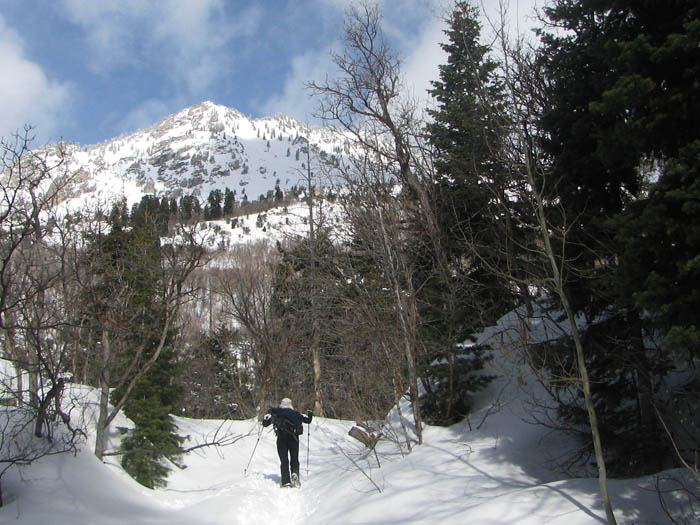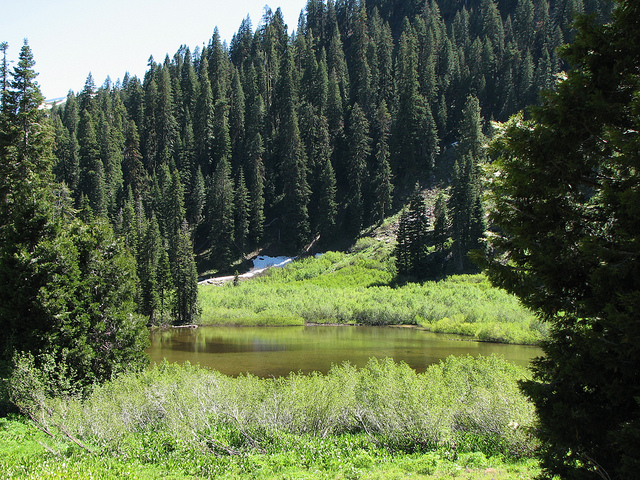Hiking GPS
There's vacation on a beach, with soft white sand and sweating glasses of lemonade. Then there's the whirlwind fun of amusement parks and non-stop action. And then, there's hiking. A hiking trip is the one vacation that you remember years down the road and tell your children about. However, a hike can very easily turn dangerous. Every hiker's biggest fear is getting lost in the wilderness. The only foolproof way to let people know where you are is through GPS tracking.

GPS tracking devices can help lost backpackers in two ways; by showing you where you are and finding a way out, and by broadcasting your signal to others so they can find you. Many mistakenly assume that their cell phones can act as GPS devices to allow others to find them in case of an emergency. Although most cell phones today have integrated GPS capabilities, the GPS coordinates of the phone are usually only transmitted if a 911 call is made from the phone. Also, in order to have access to the GPS data, the person must have the right cell phone, and be connected to the right network, with the right server. Cell phone batteries also die after a while, rendering the phone useless. Cell phones should not be relied on for GPS capabilities.
There are many GPS tracking devices that are built exclusively for hiking. These devices come with long battery life, and other features that are necessary for a hike or a camping trip. There are some features that are important to check for in a GPS tracking device.
A GPS tracker for hiking must be waterproof, and should be resistant to inclement weather conditions. Long battery life is also a necessity, as is high map capacity. A very useful feature is the ability to align maps in various compass directions.
The iTrail GPS Data Logger is an example of a GPS tracking device that is good for recording your hiking route and details about the hike, but won't help find lost hikers. Its small size allows it to take up little space and weight, and it has a hard, weather resistant exterior. However, this GPS tracker does not broadcast live signals; it must be plugged into a computer in order to download the GPS coordinates of where it has been, as well as other details such as speed and time. If your concern is safety, it is important to purchase a GPS tracker that broadcasts live signals.
The SPOT satellite GPS tracker is a popular device used by hikers. It has all the necessary features, including a weather resistant casing, a 911 call button, a feature that sends your location to others and allows them to track you, and more. Like all real time GPS trackers, this device also comes with a monthly or annual service fee for the wireless GPS service. However, the investment may be one of the most important ones you've ever made.
Of all your gear, a GPS tracker may be the most important, as it can be the difference between life and death. Make sure to thoroughly research the various service providers for a GPS tracking device that is reliable and will return on the investment.
Considerations About Bringing Along a GPS Unit
Being lost in the outdoors is a real danger, even if you are hiking along well-manicured trails in popular parks. Getting lost can happen at any time, and probably happens when you least expect and just hiking along and chatting. Finding a way back from a wrong turn on the trails is not easy because each trail can be miles long and a few wrong turns can get you lost for enough time for darkness to set in, which often brings about colder weather and a set of dangers.
Luckily, modern technology has advanced to such a degree that each one of us can bring along a GPS unit with us on our hikes. Having a GPS unit makes hiking a whole lot safer because you can always see where you are on the map of the GPS.
GPS on Your Smart Phone
Many people use the GPS that is built into their smart phones. That is only good to do to orient yourself because relying on the phone GPS during the entire hike can drain the phone battery. You should be careful not to drain your phone battery because you may need to make an actual call in case of an emergency or any other reason.
What Can Go Wrong With a GPS
Even if you bring along a GPS on your hike, there are a number of things that can go wrong with it when you need it the most. These devices are battery-powered. On a long hike, you can always run out of battery. For that reason it is a good idea to bring along an extra set of batteries, or another charge - whatever the kind of battery your particular unit requires.
Another thing that might possibly go wrong is that the extra set of batteries you bring may not work. There is a very little chance of that, but nonetheless, when you are in the outdoors, even the small-chance events can sometimes occur. Other things that can happen is that the GPS can get wet in case of rain, or simply break from a blow to it by a branch or a rock, or even if you slip and fall on a bag that the GPS is in. You should be very careful to protect your GPS so that it does not get damaged during the hike.
Compass If GPS Is Too Expensive
The GPS can be a fun toy, but it is expensive and requires attention to its battery life, and making sure it does not get damage during your trip. Many hikers choose the much cheaper option of simply bringing along a compass to tell which direction they are going. The compass does not weigh you down, does not need batteries, and costs just a few dollars. Just make sure it doesn't get damaged before or during the hike.

